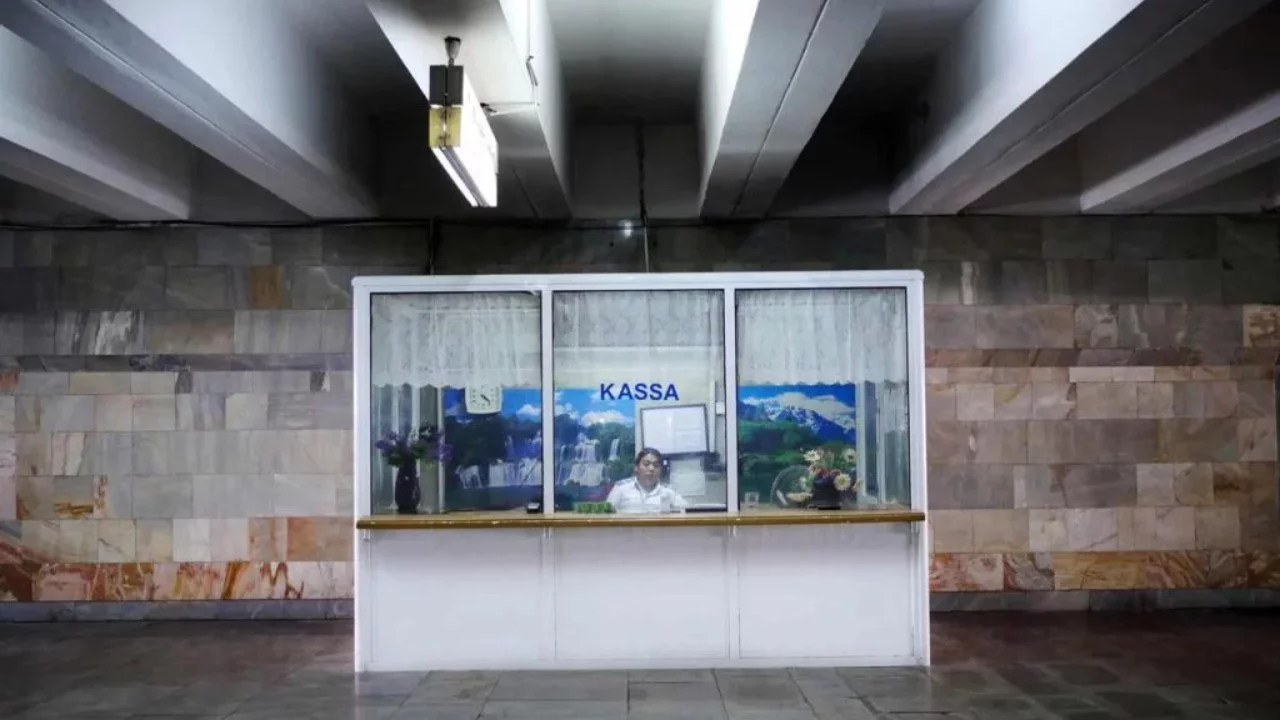Ticket offices at metro stations are no longer operational
[right]
A significant change is beginning for passengers in the Tashkent Metro. Ticket counters at some metro stations in the capital have ceased operations. This news was reported by the Tashkent Metro press service.
According to official sources, the decision was made based on long-term observations and analysis. Currently, almost all passengers in the Tashkent Metro use cashless payment methods. While previously 45–50% of passengers used single-use tickets, today that number has dropped to just 6–7%.
In connection with this, traditional ticket counters at 13 major stations of the Tashkent Metro — specifically in certain vestibules — have been shut down. These stations include:
– Mirzo Ulugbek
– Druzhba Narodov
– Paxtakor
– Hamid Olimjon
– Pushkin
– Dustlik
– Tashkent
– Oybek
– Tinchlik
– Shahriston
– Bodomzor
– Kichik
– Abdulla Qodiriy
The metro administration stated that this measure aims to make the metro experience faster, more modern, and more convenient. Currently, automated ticket vending machines have been installed in place of the ticket counters in test mode. Passengers can now pay not only with ATTO cards, but also with bank cards, mobile apps, and even biometric identification — through palm scanning.
Metro staff emphasize that the new system saves time, eliminates queues, and significantly improves passenger comfort. The technology also allows for centralized data processing and system monitoring.
In some vestibules, terminals for cash payments are also being tested. This provides a smoother transition for citizens accustomed to traditional payment methods.
The growing culture of digital payments among the Tashkent population is another major reason for this decision. Young people and business professionals prefer to use smartphones, QR codes, and mobile apps for commuting.
Moreover, digital payments ensure transparency — every transaction is automatically registered in the system. This enhances financial transparency in the transport sector and helps prevent corruption.
This trend is also seen worldwide. Many metro systems across the globe are moving away from traditional ticket offices and adopting digital payment models. Major cities like London, Singapore, Seoul, and Tokyo have already implemented such systems.
Experts say these changes are crucial not only for saving time and money, but also for ensuring passenger safety and health. Reduced physical contact lowers the risk of spreading infectious diseases.
Efforts are also underway to improve metro service quality, update station equipment, and expand payment infrastructure. Soon, all stations are expected to be fully equipped with digital ticket systems.
Such developments represent a key step not only for the transport sector, but also for the broader process of urban digitalization and modernization. In short, the Tashkent Metro is confidently stepping into the digital era. Read “Zamin” on Telegram!

A significant change is beginning for passengers in the Tashkent Metro. Ticket counters at some metro stations in the capital have ceased operations. This news was reported by the Tashkent Metro press service.
According to official sources, the decision was made based on long-term observations and analysis. Currently, almost all passengers in the Tashkent Metro use cashless payment methods. While previously 45–50% of passengers used single-use tickets, today that number has dropped to just 6–7%.
In connection with this, traditional ticket counters at 13 major stations of the Tashkent Metro — specifically in certain vestibules — have been shut down. These stations include:
– Mirzo Ulugbek
– Druzhba Narodov
– Paxtakor
– Hamid Olimjon
– Pushkin
– Dustlik
– Tashkent
– Oybek
– Tinchlik
– Shahriston
– Bodomzor
– Kichik
– Abdulla Qodiriy
The metro administration stated that this measure aims to make the metro experience faster, more modern, and more convenient. Currently, automated ticket vending machines have been installed in place of the ticket counters in test mode. Passengers can now pay not only with ATTO cards, but also with bank cards, mobile apps, and even biometric identification — through palm scanning.
Metro staff emphasize that the new system saves time, eliminates queues, and significantly improves passenger comfort. The technology also allows for centralized data processing and system monitoring.
In some vestibules, terminals for cash payments are also being tested. This provides a smoother transition for citizens accustomed to traditional payment methods.
The growing culture of digital payments among the Tashkent population is another major reason for this decision. Young people and business professionals prefer to use smartphones, QR codes, and mobile apps for commuting.
Moreover, digital payments ensure transparency — every transaction is automatically registered in the system. This enhances financial transparency in the transport sector and helps prevent corruption.
This trend is also seen worldwide. Many metro systems across the globe are moving away from traditional ticket offices and adopting digital payment models. Major cities like London, Singapore, Seoul, and Tokyo have already implemented such systems.
Experts say these changes are crucial not only for saving time and money, but also for ensuring passenger safety and health. Reduced physical contact lowers the risk of spreading infectious diseases.
Efforts are also underway to improve metro service quality, update station equipment, and expand payment infrastructure. Soon, all stations are expected to be fully equipped with digital ticket systems.
Such developments represent a key step not only for the transport sector, but also for the broader process of urban digitalization and modernization. In short, the Tashkent Metro is confidently stepping into the digital era. Read “Zamin” on Telegram!
Ctrl
Enter
Found a mistake?
Select the phrase and press Ctrl+Enter 




















